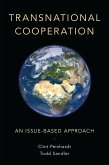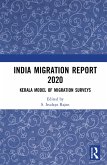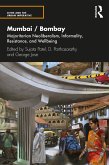The concept of globalization has become ubiquitous in social science and in the public consciousness and is often invoked as an explanation for a diverse range of changes to economies, societies, politics and cultures - both as a positive liberating force and as a wholly negative one. Whilst our understanding of the politics, economics, and social resonance of the phenomenon has become increasingly sophisticated at the macro-level, this book argues that globalization too often continues to be depicted as a set of extra-terrestrial forces with no real physical manifestation, except as effects. The essays challenge this dominant understanding of 'globalization from above' through explorations of the mundane means by which globalization has been achieved. Instead of a focus on the meta-political economy of global capitalism, the book concentrates on the everyday life of capitalism, the not-so-'little' things that keep the 'large' forces of globalization ticking over. With its eye on the mundane, the book demonstrates that a series of everyday and, consequently, all but invisible formations critically facilitate and create the conditions under which globalization has flourished. The emphasis is on concrete moments in the history of capitalism when these new means of regular reproduction were invented and deployed. Only by understanding these infrastructures can we understand the dynamics of globalization. In short, punchy essays by distinguished researchers from across a range of disciplines, this book provides a new way of understanding globalization, moving away from the standard accounts of global forces, economic flows, and capitalist dynamics, to show how ordinary practices and artefacts are crucial elements and symbols of globalization.
Dieser Download kann aus rechtlichen Gründen nur mit Rechnungsadresse in A, B, BG, CY, CZ, D, DK, EW, E, FIN, F, GR, HR, H, IRL, I, LT, L, LR, M, NL, PL, P, R, S, SLO, SK ausgeliefert werden.









